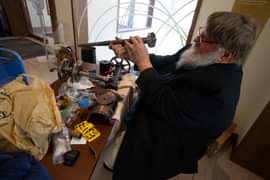
March 20, 2020
More valuable than oil: Your data
Cambridge Analytica whistleblower Brittany Kaiser ’05 predicts increased meddling in November electionsby Rita Savard
The 2018 Cambridge Analytica scandal made data privacy one of the biggest ethical, political, and legal issues of our time. By sharing crucial evidence with authorities and the public to expose the largest personal data leak in Facebook history, former Cambridge Analytica director Brittany Kaiser ’05 is setting the record straight—and helping people become more digitally savvy consumers.
“I worked for a company that misused people’s data,” says Kaiser, who, since resigning from Cambridge Analytica in January 2018, has become a prominent data justice advocate. “It has been over two years since the news broke about Cambridge Analytica and still we see no changes for voters to be protected. Digital literacy is important, and with elections coming up this year I want to help people understand the tactics and strategies being used to manipulate them so that they can protect and empower themselves.”
Kaiser, the subject of the Netflix documentary The Great Hack—shortlisted for an Oscar and a British Academy Film Award—also penned a book in 2019, Targeted, that takes readers behind the curtain of how Cambridge Analytica used Facebook data from some 87 million users to manipulate voters and influence the 2016 U.S. election. The firm also used personal data from individuals to create targeted marketing to influence elections in more than 60 countries and the Brexit campaign in Great Britain.
Data justice means that everybody has the same rights to transparency—to know what data is being collected about them and how it is being used. The fact that we don't have those rights right now is one of the biggest problems in technology.
”All of your digital transactions—credit card swipes, web searches, locations, and likes—are collected in real time in a trillion-dollar-a-year industry. In 2017, data surpassed oil as the most valuable asset in the world. And at the moment, no federal laws exist to protect an individual’s personal data from being bought, sold, and traded to the highest bidder.
“It’s shocking that we’re still living in no man’s land, where digital legislation is not defined,” Kaiser says.
Last year, Kaiser cofounded the Own Your Data Foundation, which trains people to become more digitally savvy through digital literacy and education. She is also working with state lawmakers in California and New York to hammer out digital privacy laws that will put the power of a person’s data back in their own hands.
Because individual data has become such a valuable commodity, Kaiser says the individual should be in charge of that personal property and, much like any other asset—a house, a car, etc.—the individual should be able to decide who can use that information and be paid accordingly.
“There’s a culture where legislators and executives are earning a lot of money by taking people’s personal data,” Kaiser says. “We have to get to a place where the power is shifted back into the hands of the people who own that data. That’s why creating laws right now to protect data is so important.”
Read about more Andover alumni working in fields of justice.
Categories: Magazine
Other Stories

John Briggs ’77 and the Abbot Academy Fund bring the iconic instrument home




